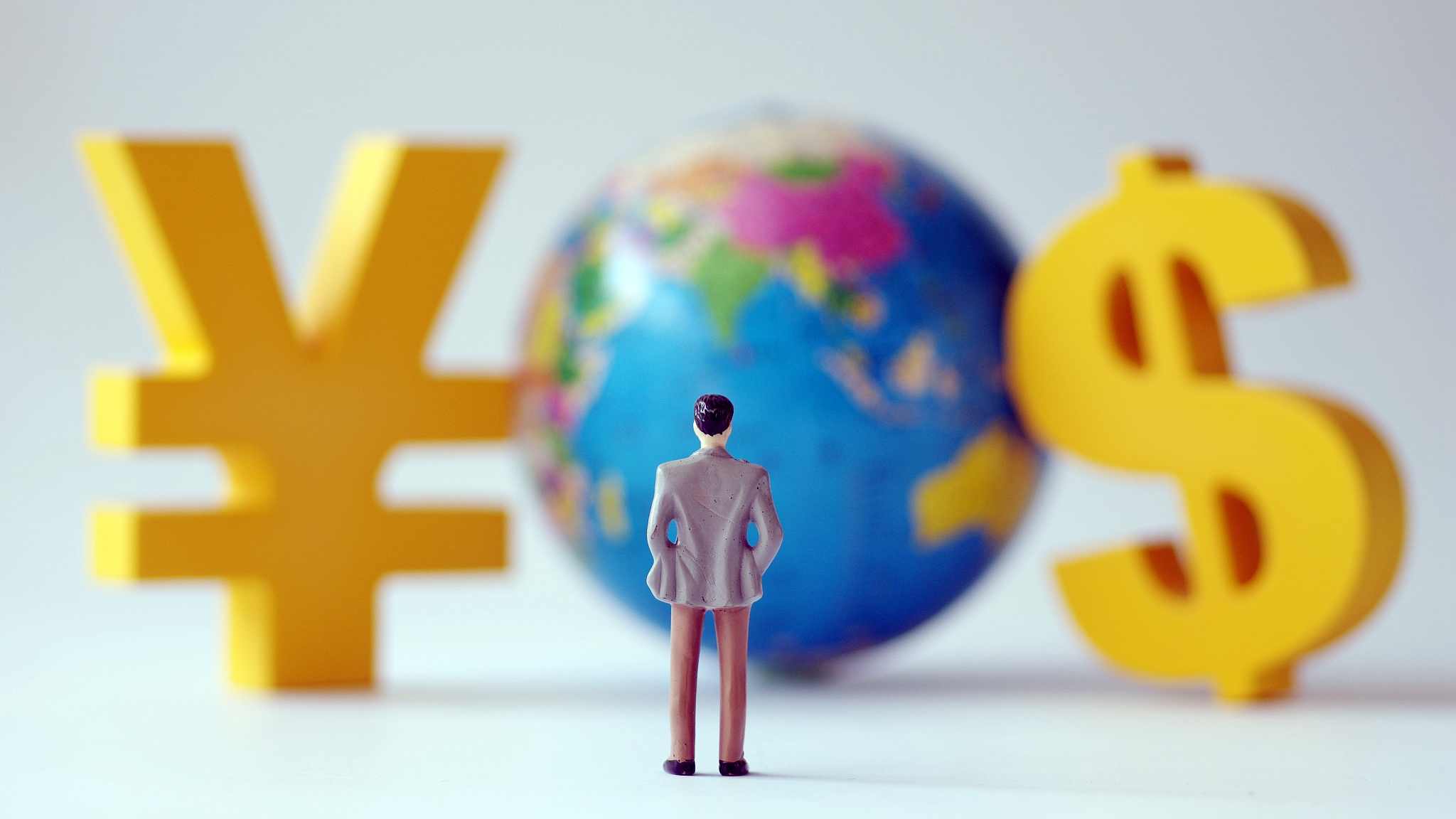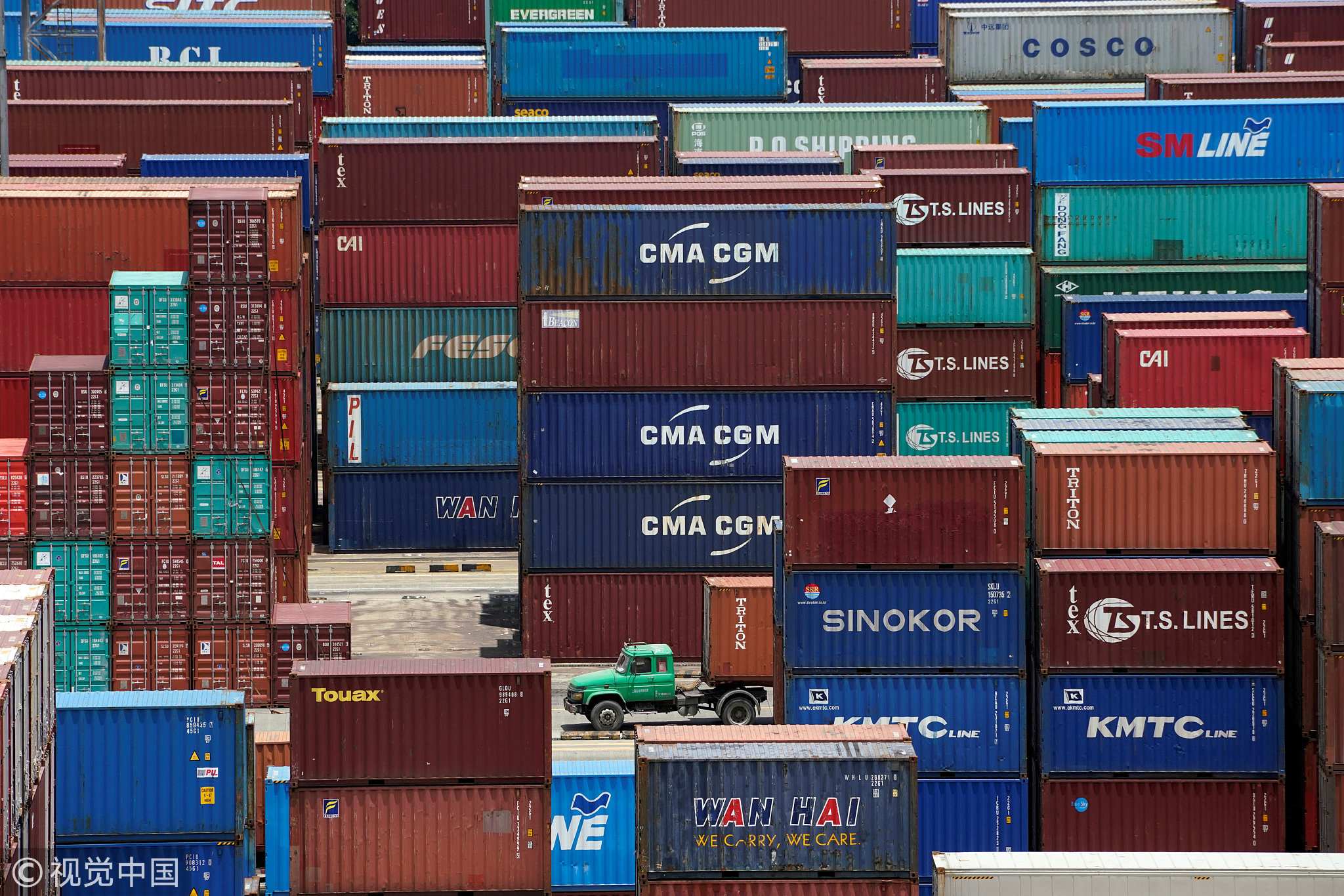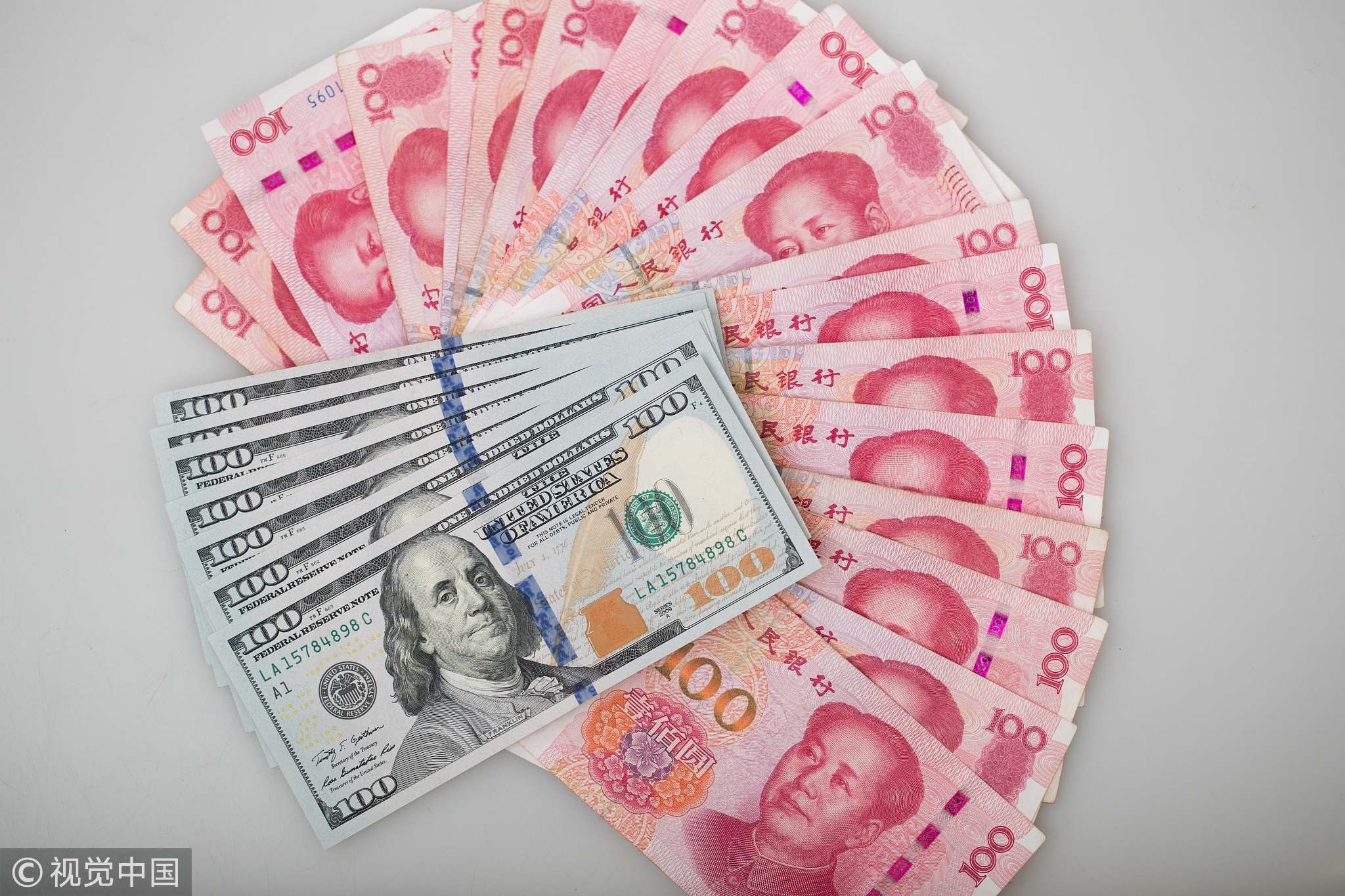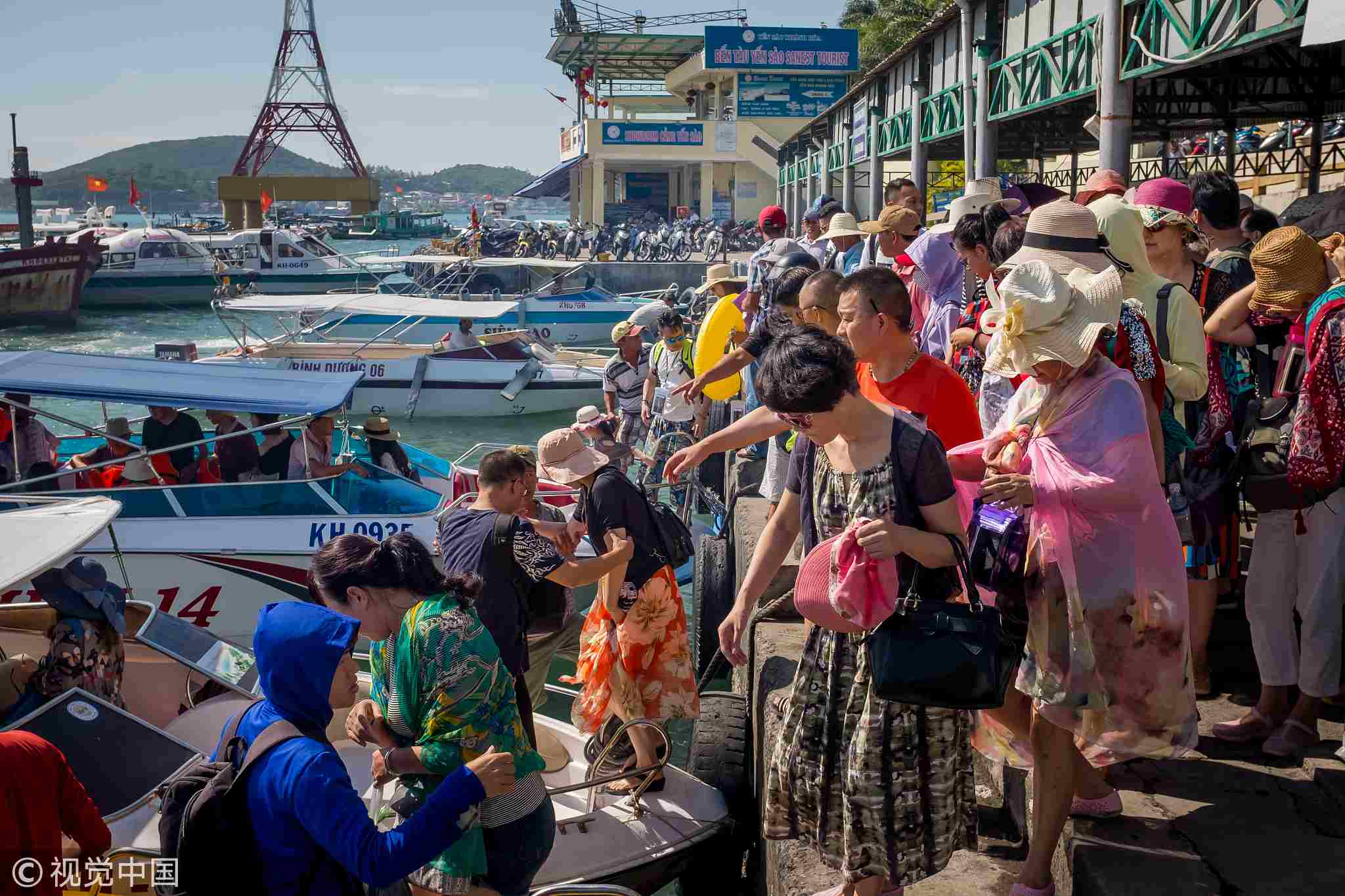
Opinions
17:33, 08-Sep-2018
Opinion: China's overall forex reserves will remain stable
Updated
17:18, 11-Sep-2018
By Bian Yongzu

Editor's Note: Bian Yongzu is a research fellow at the Chongyang Institute for Financial Studies at Renmin University of China. The article reflects the author's opinion, and not necessarily the views of CGTN.
On September 7, China's central bank the People's Bank of China released data showing that China's total foreign exchange reserves in August were 3.1097 trillion US dollars, down 0.26 percent from the end of July.
All of this is within expectations. Since January this year, the size of the foreign exchange reserves has been stable at about 3.1 trillion US dollars, with mild fluctuations from then on.
Generally speaking, the amount of foreign exchange has been trending downward. In the future, there will be no drastic change in the scale of China's foreign exchange reserves, but there is a possibility that they will continue to decline mildly.
The narrowing foreign trade surplus is the main contributor to the slight decline in the reserves. Data for the first eight months of this year puts China's trade surplus in goods at 1.25 trillion yuan, down by 31.3 percent from the same period of last year. In August alone, the surplus fell by 34.2 percent from a year ago.

Shipping containers at a port in Shanghai on July 10, 2018. /VCG Photo
Shipping containers at a port in Shanghai on July 10, 2018. /VCG Photo
On July 6, the US imposed a 25 percent tariff on 34 billion dollars of Chinese products. Then on August 23, the US imposed punitive tariffs on another 16 billion dollars of Chinese goods.
The negative impact on China's exports, especially to the United States, is expected to gradually emerge in the future while China’s trade surplus will continue to fall. The United States is China's largest export market and source of the trade surplus. There is no doubt that the trade dispute can have a negative impact on China's exports and foreign exchange reserves.
At the same time, China's outbound investment is gaining momentum, which also affects the foreign exchange reserves to a certain extent. In the first seven months, China's non-financial outbound direct investment totaled 65.27 billion US dollars, up 14.1 percent from the same period last year, with a considerable amount of it carried through foreign currencies.
Compared with July, the US dollar index rose first and then fell in August. The world's major currencies such as sterling, euro and yen basically fell first and then rose against the US dollar. From this perspective, the impact of exchange rate changes on China's foreign exchange reserves is not very obvious. What is important is that the general public and investors in China have a stable expectation about the RMB exchange rate, especially after the central bank resumes the counter-cyclical factor.

VCG Photo
VCG Photo
The exchange rate of the RMB against the US dollar rebounded rapidly and stabilized. However, the scale of paid-in foreign investment in China continues to grow rapidly, with the actual amount of paid-in foreign investment reaching 7.75 billion US dollars in July, up 19.3 percent year on year. This will have a positive impact on the country's foreign exchange reserves.
In the next few months, the scale of the reserves is likely to continue declining slightly, but the overall scale will not change greatly and will remain stable.
Firstly, the intensification of the China-US trade dispute is the biggest negative factor affecting China's foreign exchange reserves. US President Donald Trump said on September 7 that he has tariffs ready to go on a further 267 billion dollars worth of Chinese imports, as the world awaits his decision on imposing levies on 200 billion dollars worth of Chinese goods.
Judging from the current situation, the trend of a narrowing trade surplus is hard to reverse. Meanwhile, due to US protectionism and the Federal Reserve's decision to raise interest rates, some enterprises have no choice but to increase their investment in the US.
Secondly, the outbound investment of Chinese enterprises will accelerate. In terms of the global economy, growth is not waning. The US trade dispute with other countries will lead to chaos in the global industrial supply chain, but the silver lining is that it can also bring opportunities for restructuring the global supply chain.
More M&As can be expected. With the growing amount of outbound investment experience of Chinese enterprises and the continuous improvement of relevant policy institutions, their ability to avoid risks is also strengthening. It’s believed that the trend of accelerating outbound investment will continue.
Moreover, the second half of this year is the peak season of overseas travel and study. Many holidays in this period and the homecoming season of schools abroad will generate more individuals’ demand for currency exchange. In the first half of 2018, the number of Chinese citizens traveling abroad increased by 15 percent year on year. In the second half of the year, residents will be more prone to travel.

Hundreds of Chinese tourists get on board boats for islands from Cau Da Port in Nha Trang, Vietnam, September 10, 2017. /VCG Photo
Hundreds of Chinese tourists get on board boats for islands from Cau Da Port in Nha Trang, Vietnam, September 10, 2017. /VCG Photo
Compared with outbound travel, the growth of China’s inbound tourism is not obvious. In the first half of this year, the number of inbound tourists decreased by 0.4 percent compared with the same period of last year, and the revenue ratio between inbound and outbound tourism increased by only 2.8 percent.
Of course, there are many positive factors for China's foreign exchange reserves. China is speeding up the opening-up of the financial sector to foreign players, especially in banking, securities and futures. More foreign capital is flowing into China at a faster speed. Starting from September, phase two of A shares’ inclusion in the MSCI index will be formally implemented, and the inclusion factor will also be doubled from 2.5 percent to 5 percent, which will encourage the investment of more overseas funds in China's capital market.
It is worth noting that the intensification of the China-US trade dispute has also forced more enterprises to increase their investment in China due to the huge scale of the Chinese market. Recently, Toyota, Honda and Nissan, Japan's three biggest auto companies, have announced their intention to expand their investment in China.
Therefore, on the whole, the outside world still maintains great confidence in China’s economic growth and there will be no drastic change in the overall size of the nation's foreign exchange reserves.

SITEMAP
Copyright © 2018 CGTN. Beijing ICP prepared NO.16065310-3
Copyright © 2018 CGTN. Beijing ICP prepared NO.16065310-3